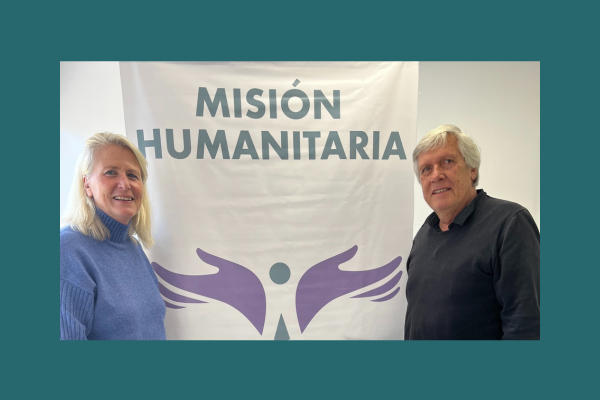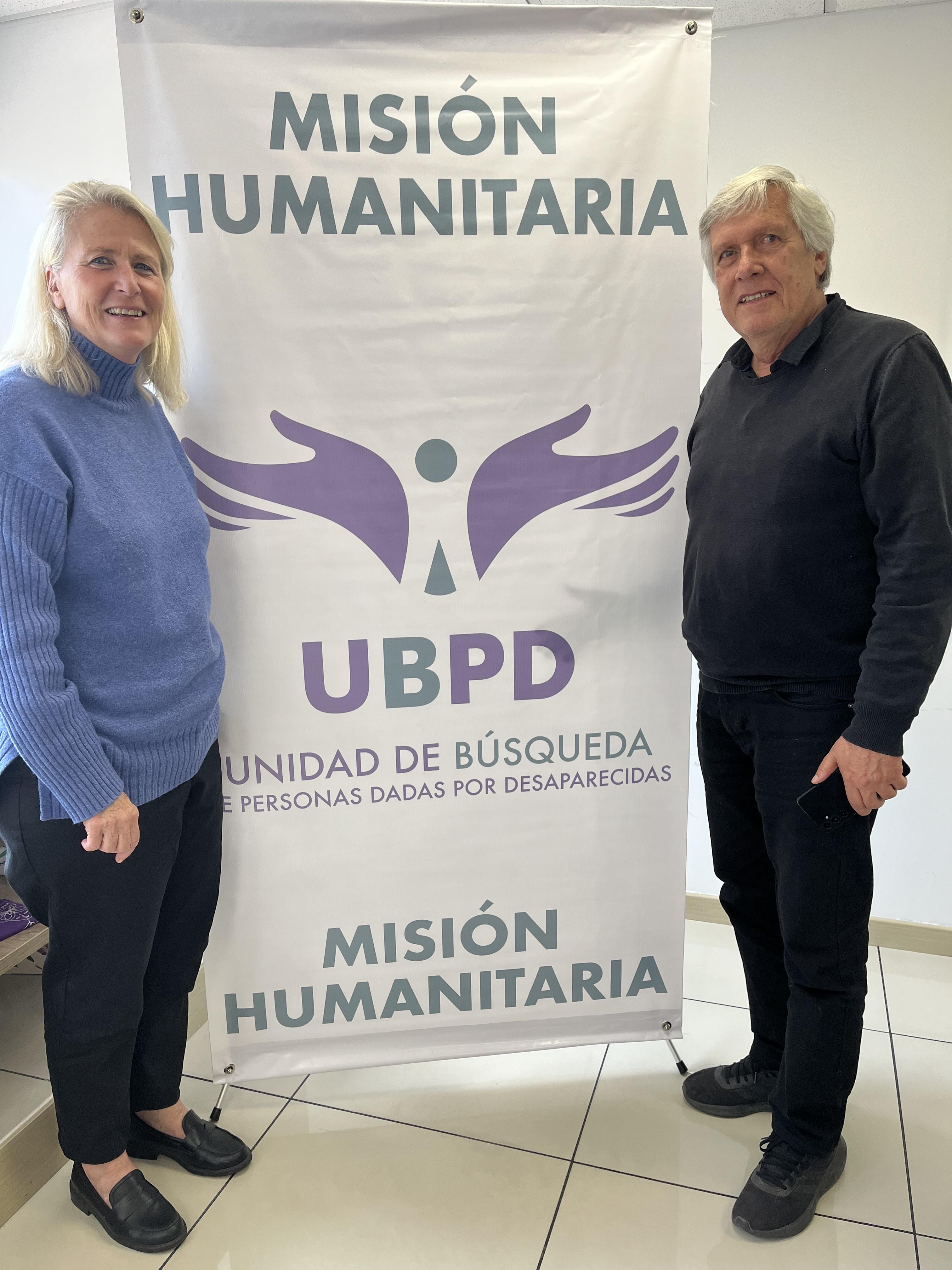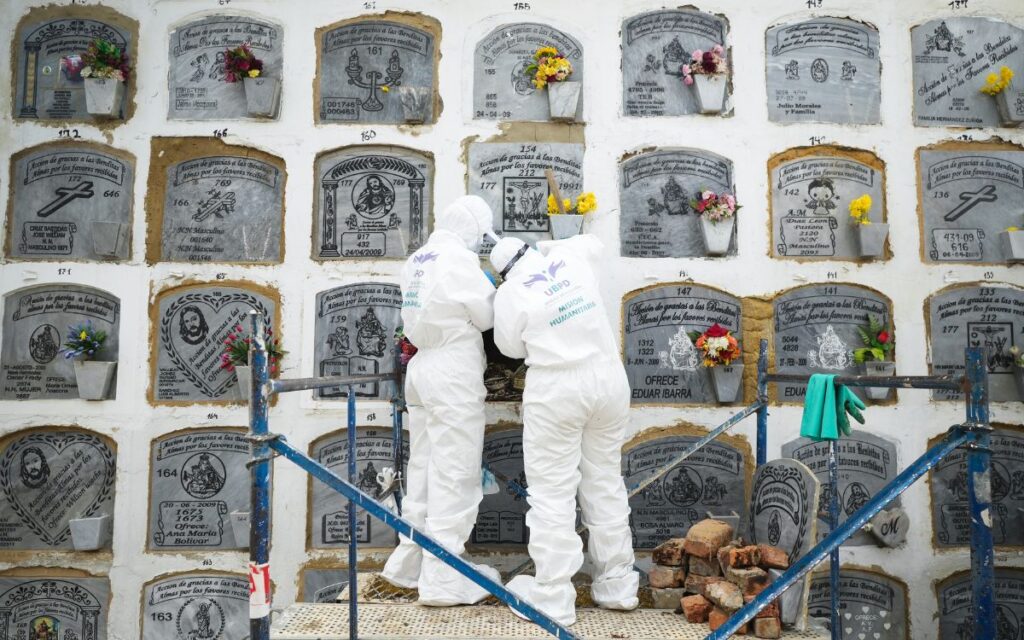Teri Murphy connects with Unidad de Búsqueda de Personas dadas por Desaparecidas (UBPD) in Bogotá, Colombia

In November 2024, Mershon Center for International Security Studies Associate Director Teri Murphy was invited to Bogotá, Colombia to learn more about the Unidad de Búsqueda de Personas dadas por Desaparecidas (UBPD), the Missing Persons Search Unit. While there, she engaged in conversations with a wide range of UBPD leaders and explored ways in which the UBPD, the Mershon Center, and The Ohio State University might collaborate. UBPD is a state legislated humanitarian and extrajudicial entity that leads search actions to find the Disappeared and respond to those who are looking for people reported missing due to armed conflict.

Between 1970-2016, more than 110,000 Colombians including rural populations, female leaders, social and community leaders, politicians, children, young people, people belonging to Indigenous peoples and black, Afro-Colombian, Palenquero and Raizal communities, and people with diverse sexual orientations and identities, disappeared.
“The State’s military apparatus, paramilitaries, and guerillas often carried out very targeted, ruthless, and dehumanizing violence on Colombian citizens. Their bodies became both the receivers and containers of atrocity. For this reason, the disappeared are a site where social knowing is held and stored but where humanity might also be restored,” said Murphy.
The locations where missing persons were disposed, buried, or dumped after their disappearance are spread across territories with diverse characteristics and complexities: cemeteries, graves in open fields, estuaries, canals, rivers, hillsides, mountains, private properties, public properties, construction sites, waste dumps and extremely remote rural locations.
“The disappeared, how they died – some mutilated, burned, others discarded, dumped in cisterns, rivers, trash heaps - how their lives, deaths, and bodies were treated, represents a challenge to our thinking,” reflected Murphy in conversation with UBPD leaders. “At a fundamental level, it calls into question what it means to be human, human nature, and being part of human society. Your disappeared are telling a story to Colombia about Colombia. And I think – through the work of UBPD – you are trying to tell a different story.”
Peace negotiations between the National Government and Revolutionary Armed Forces of Colombia-People’s Army (FARC-EP) concluded in August 2016. Due to the mass scale, the war’s prolonged duration, historically obstructed and delayed approaches to peace, the long-term impact of multiple rights violations on individuals and communities, and a historical pattern of impunity, stakeholders in Colombia’s peace process determined that an integrated and comprehensive approach to transitional justice was necessary. This determination led to the creation of truth commission, a Special Jurisdiction for Peace, and the UBPD. UBPD’s mission is to find the disappeared, but its efforts are also meant to be humanitarian and restorative. Their work contributes to the relief of suffering, and it supports victims’ rights to search, to truth, to justice, to reparation, and to non-repetition.
“Many of these families have already spent years attempting to find their loved ones and to learn the truth about what happened to them,” said Murphy. "For them, UBPD’s search for the Disappeared is itself healing because it acknowledges the pain of these family members and validates what has been denied and ignored for decades.”

Building connections with the UBPD speaks directly to the Mershon Center’s mission to better understand the human and social dimensions of complex security challenges. It also supports a vision to reframe big issues through effective research, engagement, and problem solving. UBPD’s prospecting, recovery, forensics, and humanitarian efforts have been groundbreaking. By working through a range of experts and partnering with local communities, rights activists and territorial leaders, they’ve developed new and innovative techniques and strategies for search and recovery processes.
“In my role as associate director, I am especially interested in connecting peace studies, policy, and practice in ways that encourage the cessation of violence and social healing. Given the extensive violence experienced in Colombia and our current numerous international conflicts, the world needs the knowledge, the compassion, and the tools to empower people to build peace. This is an exciting opportunity for the Mershon Center and The Ohio State University and we look forward to seeing what emerges.”
